In 2021 we sampled all fourteen sites each month, May through October. We had a heavy rain event preceding July sampling, which led to Enterococcus readings to exceed the EPA guidelines at ten of our fourteen sites. Given July’s high readings, when taken as a whole (all fourteen sites, all six sampling dates) the Roe Jan slightly exceeded the EPA criteria. If July had been dry, we would have passed the EPA test, but barely.
For more insight and information on 2021 sampling please read Emily White’s Roe Jan 2021 Data Summary. For a review of 2021 on the stream please watch Roe Jan 2021 Yearly Review (video).
Here are the 2021 results at all of the sites, compiled by Emily White, PhD, of Bard College, in a figure by Ann Olsson.
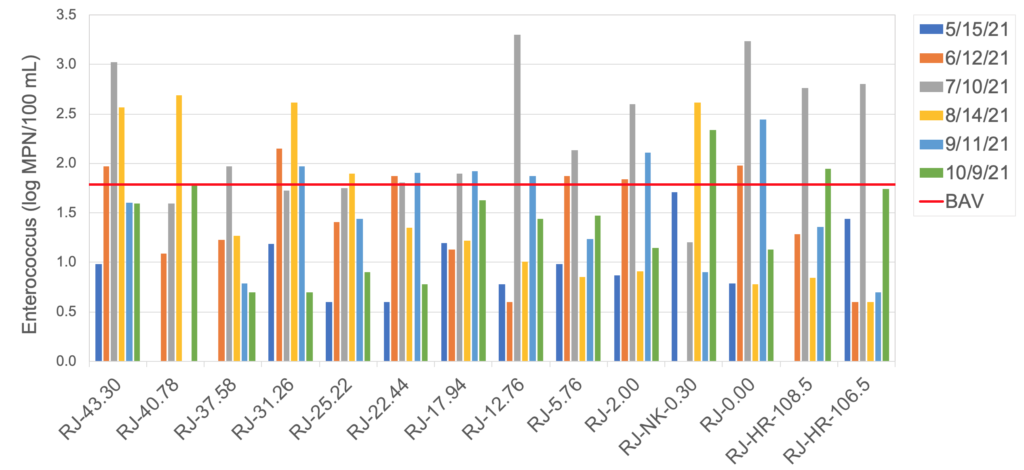
In 2021 we also added sampling for organics and trace metals, sampling at five selected sites three times each. For organics, the primary indicators are Nitrogen and Phosphorus.
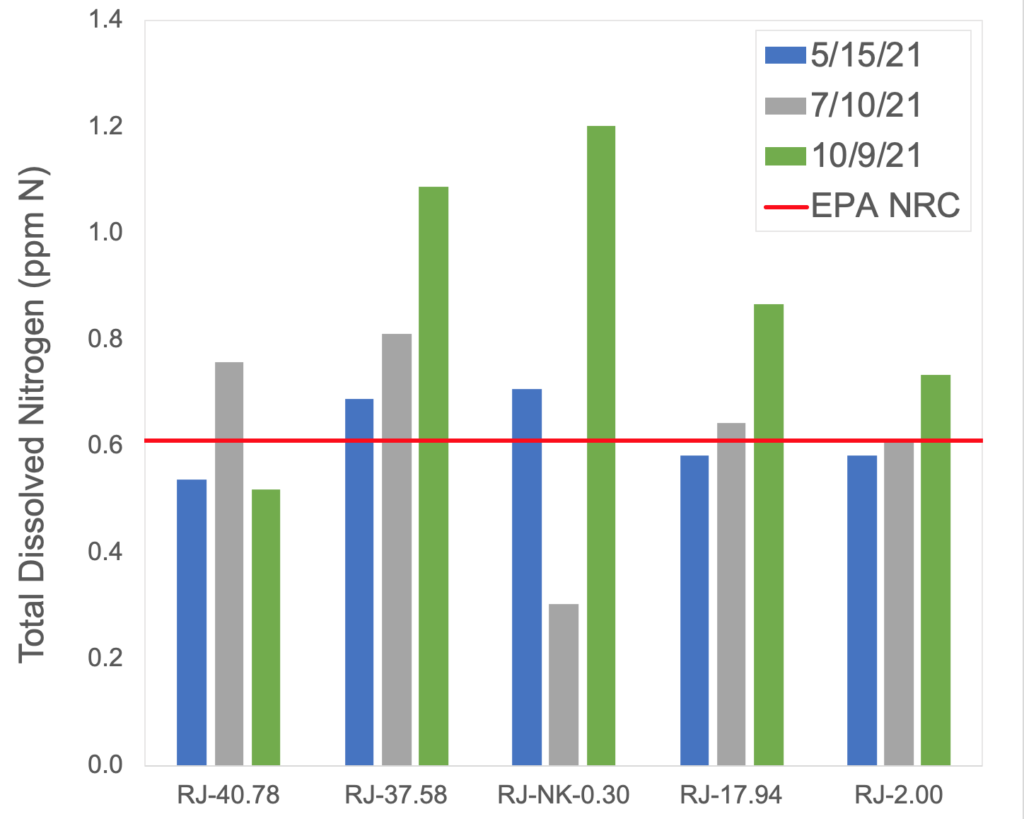
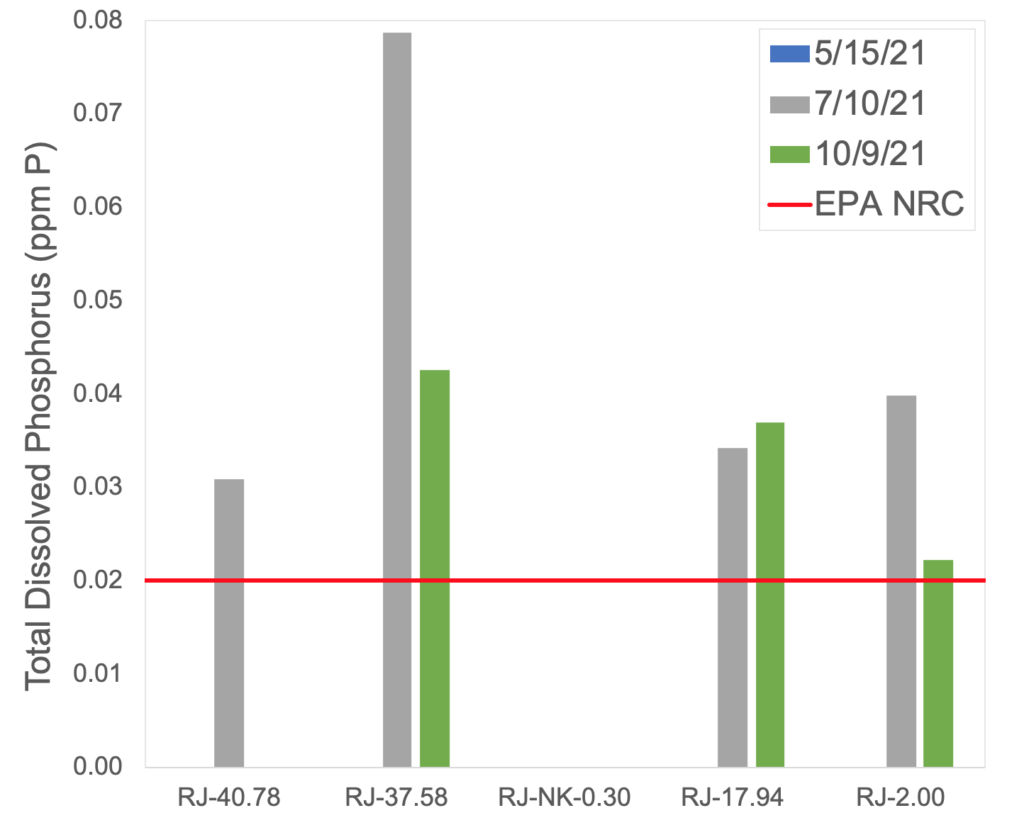
For Total Dissolved Nitrogen the stream exceeded the EPA standard in more than half the samples, for Total Dissolved Phosphorus it exceeded the standard less than half the times.
For trace metals, the samples were analyzed for eleven metals, but only Iron and Manganese were present in the water in amounts that were detectable.
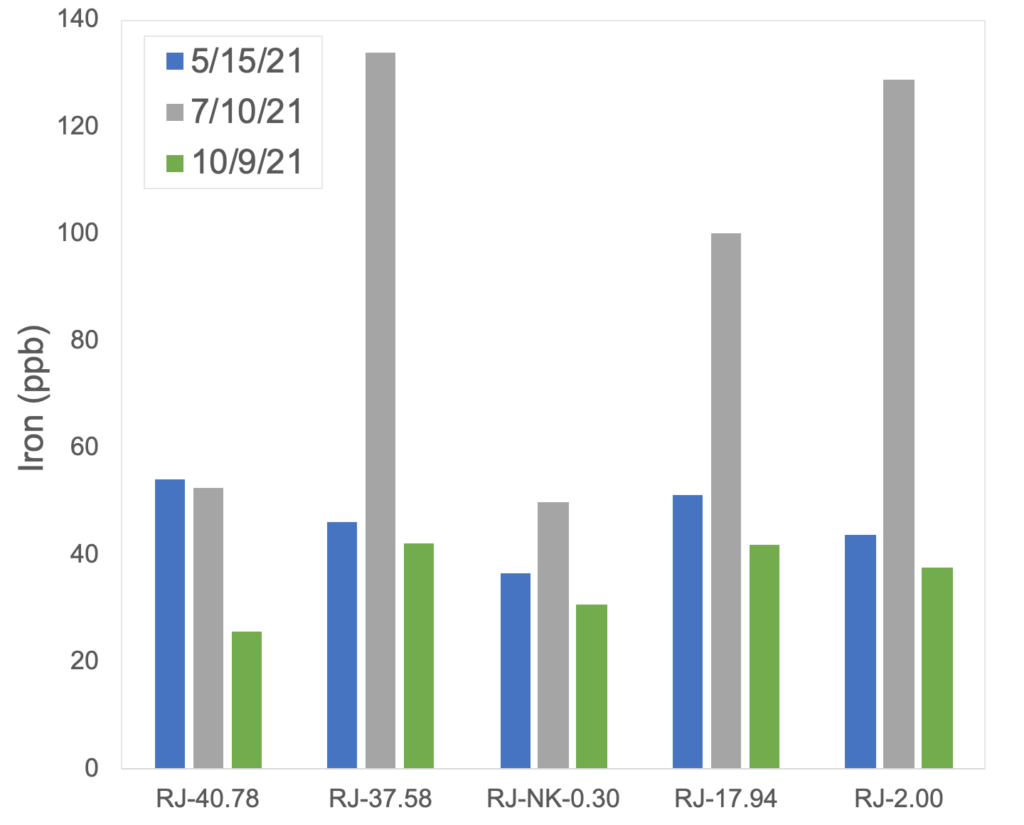
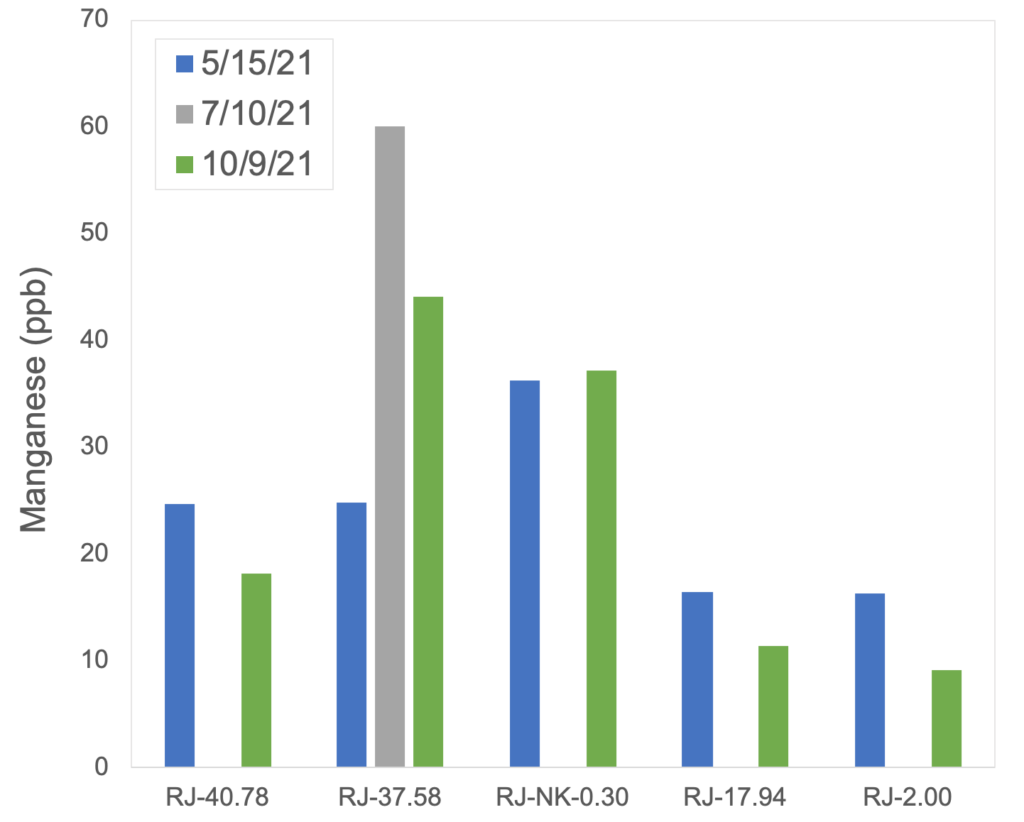
Although Iron and Manganese were detected, the levels are well below the EPA standard.